A MAN’S SEARCH FOR MEANING
“When the curtain is down, and it’s three minutes before the show, what’re you wishing for?” playwright John Kolvenbach wondered as he wrote Stand Up If You’re Here Tonight. He kept asking that question and many others as director of what at first appears to be a one-man show (Jim Ortlieb as Man) but turns out to be an ensemble piece with a very large cast.
You’re it.
And so am I.
Kolvenbach has other questions. “How will we know if we’ve done it?” the Man wonders, his long face full of longing and emotion. And “what is your goal here tonight?” he asks. He is not asking some other character on the stage these questions. He asks you, me, the audience to consider these questions. Life is short, after all, or that is generally what people say when they reach the end of it, and yet people have chosen to spend what time they have in the theater, despite problems with transportation, babysitters, and the lure of screens.
The Man sees you. He knows what you’ve been through and what you long for because he has suffered himself from the same banal annoyances and existential dread.
He makes you laugh. And that helps.
We are offered a koan (a paradox that forces us to ignore reason and achieve enlightenment): two pots of water on a stove, neither of them boiling, and you must make pasta in the space between them.
A skit: a man who receives an opportunity to recover a lost love. Will he take it?
A failure: a card trick that doesn’t work.
A memory: a mother who was most available when she was busy kneading dough or cutting fabric.
We are kept busy. Like the Man’s mother, this presumably makes us available to listen, to hear what he is telling us. We sing, we clap, we sigh.
We do these things together.
We stand up (if we’re here tonight).
What does it mean to be here? To be available for the schmear, the blend, the merge we seek?
How will we know if we’ve done it? And what if we have not? “Don’t blame yourself,” the Man urges, his voice full of compassion. He is on a stage full of abandoned tools, or props, or projects, or aspirations’”lamps, rugs, trunks, doors that go nowhere.
The program quotes from Jean-Jacques Rousseau, that figure of the Enlightenment: “Present the spectators as the show, make them actors themselves, make each one see himself and love himself in all the rest, so that their oneness grows.”
photos of Jim Ortlieb by Nile Hawver
Stand Up If You’re Here Tonight
Huntington Theatre Company
Maso Studio at the Huntington Theatre, 264 Huntington Avenue in Boston
ends on March 3, 2024 EXTENDED to March 23, 2024
for tickets, call 617-266-0800 or visit Huntington
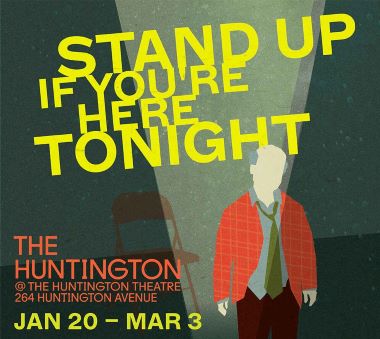
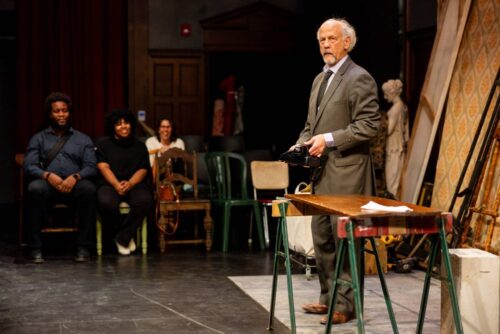
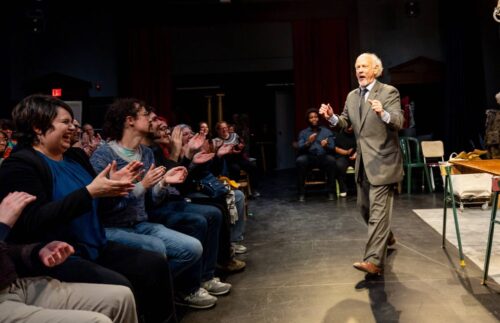
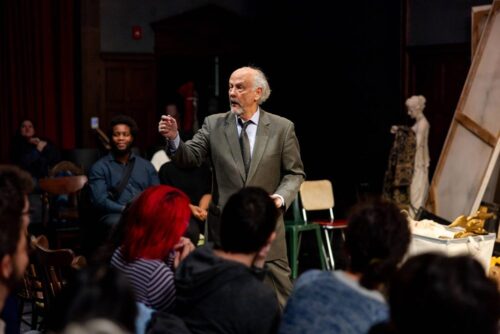
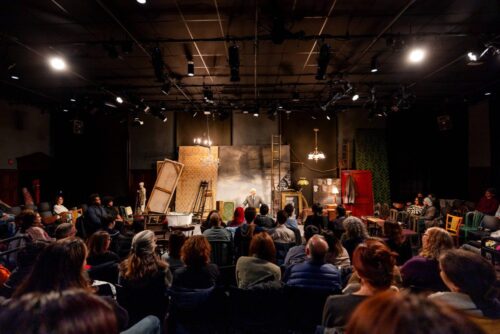
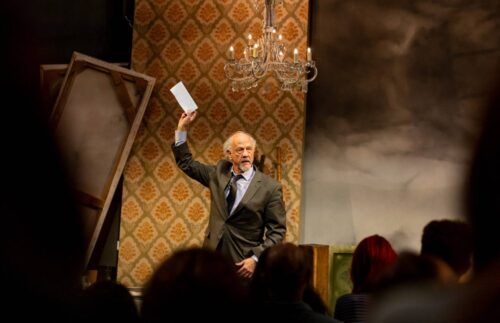

{ 1 comment… read it below or add one }
Lovely review! Captures (or at least, brings us near) the essentials of this truly original and moving show.